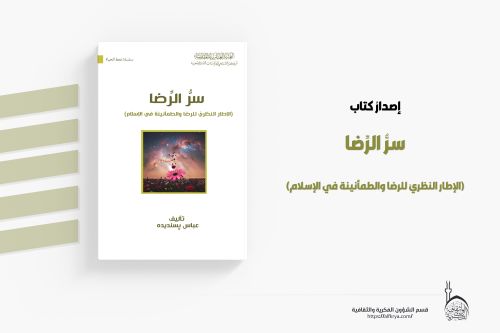

Grammar


Tenses


Present

Present Simple

Present Continuous

Present Perfect

Present Perfect Continuous


Past

Past Continuous

Past Perfect

Past Perfect Continuous

Past Simple


Future

Future Simple

Future Continuous

Future Perfect

Future Perfect Continuous

Passive and Active


Parts Of Speech


Nouns

Countable and uncountable nouns

Verbal nouns

Singular and Plural nouns

Proper nouns

Nouns gender

Nouns definition

Concrete nouns

Abstract nouns

Common nouns

Collective nouns

Definition Of Nouns


Verbs

Stative and dynamic verbs

Finite and nonfinite verbs

To be verbs

Transitive and intransitive verbs

Auxiliary verbs

Modal verbs

Regular and irregular verbs

Action verbs


Adverbs

Relative adverbs

Interrogative adverbs

Adverbs of time

Adverbs of place

Adverbs of reason

Adverbs of quantity

Adverbs of manner

Adverbs of frequency

Adverbs of affirmation


Adjectives

Quantitative adjective

Proper adjective

Possessive adjective

Numeral adjective

Interrogative adjective

Distributive adjective

Descriptive adjective

Demonstrative adjective


Pronouns

Subject pronoun

Relative pronoun

Reflexive pronoun

Reciprocal pronoun

Possessive pronoun

Personal pronoun

Interrogative pronoun

Indefinite pronoun

Emphatic pronoun

Distributive pronoun

Demonstrative pronoun


Pre Position


Preposition by function

Time preposition

Reason preposition

Possession preposition

Place preposition

Phrases preposition

Origin preposition

Measure preposition

Direction preposition

Contrast preposition

Agent preposition


Preposition by construction

Simple preposition

Phrase preposition

Double preposition

Compound preposition


Conjunctions

Subordinating conjunction

Correlative conjunction

Coordinating conjunction

Conjunctive adverbs


Interjections

Express calling interjection


Grammar Rules

Preference

Requests and offers

wishes

Be used to

Some and any

Could have done

Describing people

Giving advices

Possession

Comparative and superlative

Giving Reason

Making Suggestions

Apologizing

Forming questions

Since and for

Directions

Obligation

Adverbials

invitation

Articles

Imaginary condition

Zero conditional

First conditional

Second conditional

Third conditional

Reported speech


Linguistics

Phonetics

Phonology


Semantics


Pragmatics

Linguistics fields

Syntax

Morphology

Semantics

pragmatics

History

Writing

Grammar

Phonetics and Phonology

Semiotics


Reading Comprehension

Elementary

Intermediate

Advanced


Teaching Methods

Teaching Strategies
Vowels and Diphthongs MOUTH
المؤلف:
Joan Beal
المصدر:
A Handbook Of Varieties Of English Phonology
الجزء والصفحة:
124-6
2024-02-24
1234
Vowels and Diphthongs MOUTH
In traditional dialects, especially in the far North (and Scotland), words of this class are pronounced with [u:]. This monophthongal pronunciation is the same as that of Middle English: in the far North, the Great Vowel Shift did not affect the back vowels, so that /u:/ remains unshifted. In traditional dialects, this pronunciation could be found north of the Humber, but this receded in the later 20th century. In Tyneside and Northumberland, it is now used mostly by speakers who are older and/or working-class and/or male, and most speakers would use a diphthongal pronunciation [εu] for the majority of words in this set. However, in certain words which are strongly associated with local identity this pronunciation has been lexicalized and reflected in the spelling (Beal 2000a). For example, the spelling Toon (pronounced /tu:n/) has traditionally been used by Northumbrians to refer to the City of Newcastle, where they would go for shopping and leisure. The Toon is also the local name for Newcastle United Football Club, but more recently this spelling has also been adopted by the national press (“Toon must hit back” Daily Mirror April 14th 2003). This semi-phonetic spelling and monophthongal pronunciation can also be found in the words brown (when referring to Newcastle Brown Ale), down and out, all of which either refer to local items, or are used in collocation with town in phrases such as down the Town, a night out in the Town.
In some parts of the middle North, especially South Yorkshire, this set is pronounced /a:/. According to Petyt (1985: 82–91), accounts of the traditional dialects of Bradford, Halifax and Huddersfield suggest that words such as down, ground, town had /a:/ in Bradford, /eə/ in Halifax, and that there was variation between /a:/ and /εə/ in Huddersfield. Petyt’s own investigation (conducted from 1970 to 1971) revealed that the monophthongal pronunciation was recessive, but that a compromise between “traditional” /a:/ and “RP” /au/, in which the diphthong has lengthened first element “may be among the regional features that persist”. (Petyt 1985: 165)















 قسم الشؤون الفكرية يصدر مجموعة قصصية بعنوان (قلوب بلا مأوى)
قسم الشؤون الفكرية يصدر مجموعة قصصية بعنوان (قلوب بلا مأوى) قسم الشؤون الفكرية يصدر مجموعة قصصية بعنوان (قلوب بلا مأوى)
قسم الشؤون الفكرية يصدر مجموعة قصصية بعنوان (قلوب بلا مأوى) قسم الشؤون الفكرية يصدر كتاب (سر الرضا) ضمن سلسلة (نمط الحياة)
قسم الشؤون الفكرية يصدر كتاب (سر الرضا) ضمن سلسلة (نمط الحياة)

















